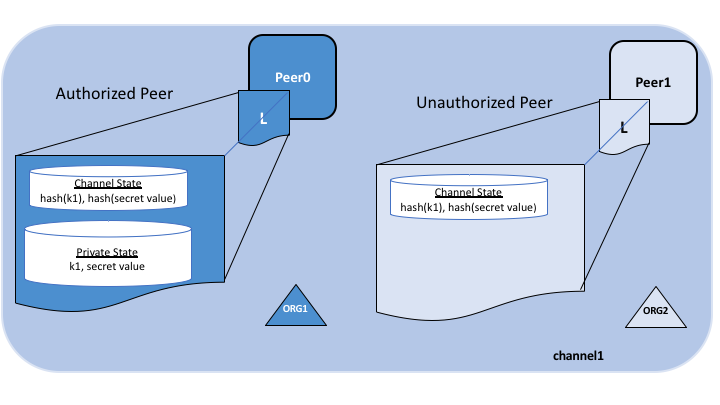Private data
官方文档:Private data
What is a private data collection?
A collection is the combination of two elements:
- The actual private data, sent peer-to-peer via gossip protocol to only the organization(s) authorized to see it. This data is stored in a private state database on the peers of authorized organizations, which can be accessed from chaincode on these authorized peers. The ordering service is not involved here and does not see the private data. Note that because gossip distributes the private data peer-to-peer across authorized organizations, it is required to set up anchor peers on the channel, and configure CORE_PEER_GOSSIP_EXTERNALENDPOINT on each peer, in order to bootstrap cross-organization communication.
- A hash of that data, which is endorsed, ordered, and written to the ledgers of every peer on the channel. The hash serves as evidence of the transaction and is used for state validation and can be used for audit purposes.
The following diagram illustrates the ledger contents of a peer authorized to have private data and one which is not.

Collection members may decide to share the private data with other parties if they get into a dispute or if they want to transfer the asset to a third party. The third party can then compute the hash of the private data and see if it matches the state on the channel ledger, proving that the state existed between the collection members at a certain point in time.
In some cases, you may decide to have a set of collections each comprised of a single organization. For example an organization may record private data in their own collection, which could later be shared with other channel members and referenced in chaincode transactions. We’ll see examples of this in the sharing private data topic below.